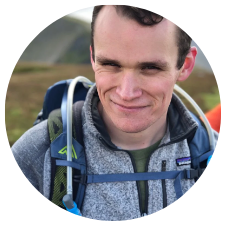November 13 @ 12:00 pm – 1:30 pm
First and second-year PhDs are welcome to attend to learn more from upper-year PhDs!
- Are you a MASc student considering a direct PhD transfer or pursuing a PhD after you finish?
- Wondering why might you finish the MASc or opt for the direct PhD transfer?
In this session, you will meet a panel of graduate students who made a transition from the MASc to the PhD and have an opportunity to ask them questions to learn more about their decision-making process as to why they chose to, alongside strategies that helped them determine transferring to the program.
Our featured panellists are:
- Jesse Macht, Department of Electrical & Computer Engineering
- Jiayi Sun, Department of Electrical & Computer Engineering
- Liz DaMaren, Department of Mechanical & Industrial Engineering
- Patrick Deng, Institute for Aerospace Studies
Moderated by Aanshi Gandhi from the Institute of Biomedical Engineering.
Jesse Macht, Department of Electrical & Computer Engineering
Jesse Macht is a PhD student working on problems related to walking biomechanics and neurological control of gait at the Department of Electrical & Computer Engineering at the University of Toronto. He completed his MASc at the same department in 2023, studying anomalous gait patterns and developing algorithms for their detection. He spent five years working in industry after completing his undergraduate degree at the University of British Columbia before commencing his graduate studies. Jesse loves to teach and engage in scientific outreach, and is interested in finding creative ways to build community through his volunteer efforts.
Jiayi Sun, Department of Electrical & Computer Engineering
My name is Jiayi Sun, and I am currently a PhD student at FORCOLAB under the supervision of Prof. Zhou in the ECE department at the University of Toronto. My main area of research is software engineering, with a focus on the sustainability of open-source and scientific software. My work involves applying mixed methods to explore sustainability challenges in scientific software from both social and technical perspectives, particularly within open-source ecosystems. Additionally, I aim to design tools that can improve the collaboration among scientists while developing scientific software and help them write code more efficiently.
Liz DaMaren, Department of Mechanical & Industrial Engineering
Liz DaMaren is currently a PhD student with the Ready Lab in Mechanical & Industrial engineering. Her research investigates learner engagement in Computer-Aided Design education, particularly focusing on group learning settings and equity, diversity, and inclusion considerations. She completed a Bachelor of Engineering & Society in Mechatronics Engineering at McMaster University and worked for a year as a project manager for a national initiative with Engineering Deans Canada before beginning as an MASc student at U of T in 2021. She made the decision to fast-track to the PhD program in 2022 to further engage with her research area.
Patrick Deng, Institute for Aerospace Studies
Patrick Deng is a PhD candidate at the University of Toronto Institute for Aerospace Studies (UTIAS), specializing in Computational Fluid Dynamics and Computational Aeroacoustics. His research focuses on fluid flow dynamics and noise generation mechanisms of airfoils. Currently, he is working on advanced modeling techniques to predict aeroacoustics noise and improve the efficiency of noise control strategies. He is also passionate about teaching and mentoring, actively engaging in workshops and seminars. His work integrates advanced computational methods and machine learning techniques to improve understanding and control of turbulent flow behaviors in engineering systems.
Moderated by Aanshi Gandhi, Institute of Biomedical Engineering
Aanshi is a fifth-year PhD candidate in Biomedical Engineering at the University of Toronto, working in the Garton Lab. Her research focuses on redesigning proteins to prevent graft-related arrhythmias following the transplantation of stem cell-derived cardiomyocytes. With a background in Integrated Sciences, specializing in Biomedical Physics from McMaster University, Aanshi brings a multidisciplinary perspective to tackling challenges in cardiovascular health. Passionate about mentoring, she encourages the next generation to explore science through creative and innovative approaches.




